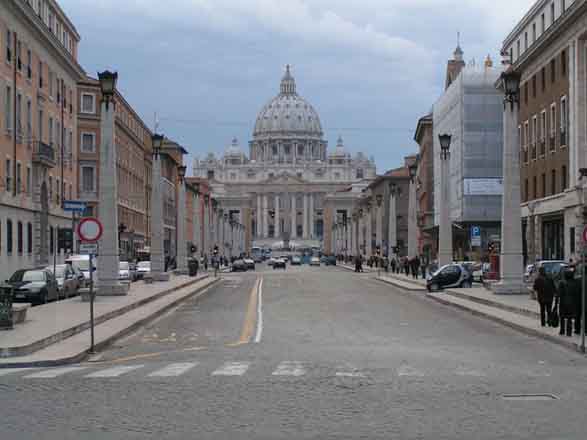An Italian magistrate on Monday upheld a preliminary confiscation of 23 million euros (30.3 million dollars) deposited from the Vatican's bank into an account of an Italian bank, dpa reported.
The seizure of the money from a branch in Rome of the Milan-based Credito Artigiano, first emerged in Italian news reports in September.
Investigative magistrate Maria Teresa Covatta on Monday rejected a request by lawyers representing the Vatican bank, the Institute for Religious Works (IOR), to have the money de-sequestered.
Italian authorities had still not been able to establish the identity of those who had access to the account - information that remains in the possession of the IOR, Covatta said.
Authorities first became suspicious following attempts to move 20 million euros from the Credito Artigiano account to an account held at a Frankfurt, Germany, branch of the bank JP Morgan, and the other 3 millon euros to an account of the Italian bank Banca del Fucino.
The deposits allegedly contravene anti-money laundering provisions introduced in 2007.
These require banks to notify authorities of transactions involving non-European Union financial institutions such as the IOR.
Two top managers of the IOR are also being investigated in connection with the monies.
However, the Vatican through its chief spokesman Father Lombardi has expressed "complete confidence" in the managers, IOR chairman Ettore Gotti Tedeschi and director general Paolo Cipriani.
Lombardi, in statements made in September, also said the seizing of the money was probably the result of a "misunderstanding" and that the IOR would easily be able to clear up the matter with Italian authorities.
The IOR handles accounts of religious orders and other Catholic associations using the offshore status of the Holy See.
In 1982 the IOR was embroiled in the collapse of an Italian bank, Banco Ambrosiano, of which it was the major shareholder.
The IOR's then head, Archbishop Paul Marcinkus, was under consideration for indictment in 1982 in Italy as an accessory of the bankruptcy, but was protected by his diplomatic immunity as a Vatican prelate
Magistrate says 23 million euros from Vatican bank to remain seized
An Italian magistrate on Monday upheld a preliminary confiscation of 23 million euros (30.3 million dollars) deposited from the Vatican's bank into an account of an Italian bank.






